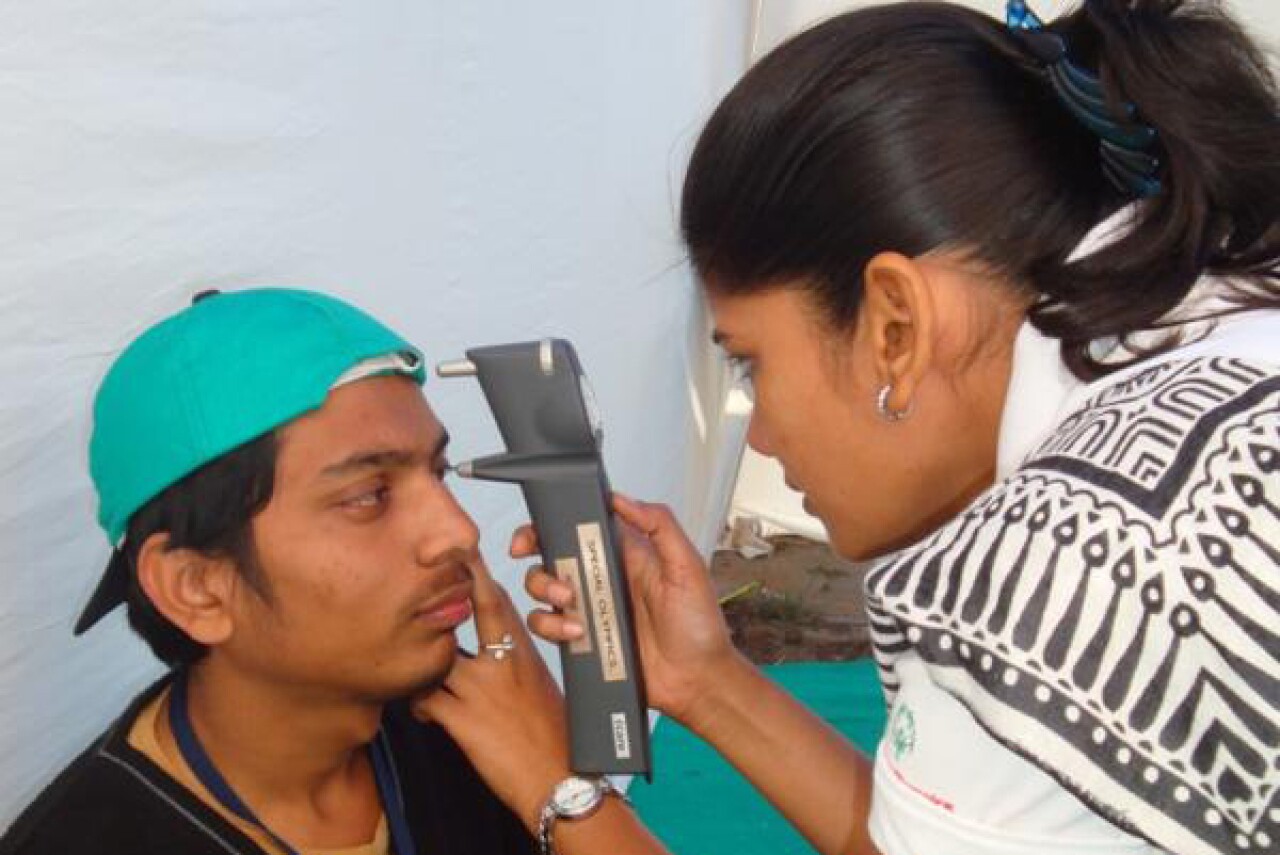Special Olympics: Health Programs

Jessica Licata, a swimmer from New Jersey, is a stronger competitor because of the prescription swim goggles she wears. A free Special Olympics Healthy Athletes vision screenings led the way to faster times. Improving the health of our athletes with intellectual disabilities is only one benefit of the program.

As many as 200 million people worldwide have an intellectual disability. Much of this population has little or no access to proper health care, even in nations with extensive health care systems or services for people with intellectual disabilities.
Photo by Will Schermerhorn

Special Olympics learned the extent of the problem among its athletes in 1995, the first year it offered free health screenings at its World Games. There, 15% of the athletes screened had such dramatic health conditions that they had to be referred to the emergency room for urgent care.

Worldwide, most people with intellectual disabilities receive inadequate or no healthcare. Healthy Communities is a model Special Olympics Health program made possible by the Golisano Foundation. The program addresses the severe health disparities faced by people with intellectual disabilities through immediate and long-term solutions.
Photo by Special Olympics Thailand

U.S. businessman and philanthropist Tom Golisano (far right) committed $12 million in 2012 to enable Special Olympics to make meaningful year-round changes in the lives of our athletes through the Healthy Communities program. In 2015, he and the Golisano Foundation committed an additional $25 million to grow Special Olympics’ health programs.
Photo by Will Schermerhorn

Healthy Athletes screenings have found that Special Olympics athletes are at increased risk of multiple, secondary health issues such as untreated tooth decay, obesity, poor hearing and low bone density.

As a sports organization, Special Olympics was in a unique position to help, and in 1997 opened a whole new world of health care to people with intellectual disabilities and their families worldwide by founding its Healthy Athletes program, offering free health screenings, services, and education.
Photo by Will Schermerhorn

Special Olympics swimmer Karina Bates of Merida, Mexico, prepares lunch for her family. Eating nutritious food is one way our athletes stay healthy and strong. Our Programs provide education in food selection and preparation that promote health.
Photo by Will Schermerhorn

Healthy Athletes screenings by volunteer health professionals are offered in vision, dentistry, podiatry, physical therapy and general fitness, audiology, healthy lifestyles and medical/sports physicals.
Photo by Will Schermerhorn

Victor Ifesinachi is a basketball player from Nigeria and received a free hearing aid at Healthy Athletes. Before, he never spoke, and the only way for him to communicate with his coach was to read lips and use the limited sign language that he knew. Immediately after getting his hearing device, he started talking and joking with his teammates.

Offered in a fun, welcoming environment, Healthy Athletes exams remove the anxiety people with intellectual disabilities often experience when faced with a visit to a doctor.
Photo by Adam Nurkiewicz

Healthy Athletes has provided more than 2.1 million free health screenings in more than 135 countries. We have given out more than 160,000 eyeglasses and trained 240,000 health professionals to better treat people with intellectual disabilities.
Photo by Karl Hejlik

Hicham Novara, a swimmer from Morocco, had such poor vision, he was essentially blind. He had to hold his cell phone two inches from his eye to see it. But by the time he finished his eye screenings and was wearing corrective lenses, he was proudly showing the volunteers pictures of his friends on his phone—while holding it at arm’s length.

With Healthy Athletes, Special Olympics maintains the largest database of health information for people with intellectual disabilities in existence.

Healthy Athletes doesn’t simply benefit Special Olympics athletes. By training health care professionals worldwide who then go back to their practices with increased knowledge of and compassion for people with intellectual disabilities, Healthy Athletes is improving the care received by millions.
Photo by Trishann Couvillion

The success of Healthy Athletes depends on the support of the volunteer network of health care providers and community members offering opportunities of inclusion for people with intellectual disabilities. Together, we can all create a legacy of care.

Special Olympics is meeting with other organizations and individuals who share the idea that people with intellectual disabilities deserve full access to quality healthcare. The need is enormous but Special Olympics is determined to meet it.






